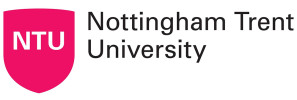© Pint of Science, 2025. All rights reserved.
Let’s talk health! Our well-being plays a big role in our overall quality of life and scientific discoveries can help us better understand fad from facts. Tonight’s speakers have a range of talks to share from skin care to e-cigarette use, increasing muscle mass to rehabilitation. Let’s learn more about our body together!
Skin ageing and skincare
Ellie Bradley
(Science Credentialing Manager)
Skin ageing is associated with wrinkles and a loss of firmness and elasticity. But are these changes all about the passage of time or does our environment play a role in how our skin ages? And can skincare ingredients really help? We’ll take a journey inside the skin to see.
This talk will aim to answer the following questions:
1. Why does some people’s skin age faster than others?
2. How does our environment influence skin ageing?
3. How do typical skincare ingredients work within the skin, such as retinol and peptides?
Dr Ellie Bradley has worked in the cosmetics industry for over 10 years, where she has conducted various research projects in the area of skin ageing and repair.
This talk will aim to answer the following questions:
1. Why does some people’s skin age faster than others?
2. How does our environment influence skin ageing?
3. How do typical skincare ingredients work within the skin, such as retinol and peptides?
Dr Ellie Bradley has worked in the cosmetics industry for over 10 years, where she has conducted various research projects in the area of skin ageing and repair.
The benefits and risks of e-cigarettes: What do we know?
Tessa Langley
(Associate Professor in Health Economics)
Research has found that electronic cigarettes (e-cigarettes) can help people to stop smoking and that they are likely to be much less harmful than smoking, but there are concerns about the increasing use of e-cigarettes by children and young adults who have never smoked, as well as their environmental impact. This talk will give an overview of what we know about e-cigarettes – and what we don’t – and what this means for how e-cigarettes should be regulated.
Dr Tessa Langley is an Associate Professor in Health Economics in the Nottingham Centre for Public Health and Epidemiology at the University of Nottingham.
Dr Tessa Langley is an Associate Professor in Health Economics in the Nottingham Centre for Public Health and Epidemiology at the University of Nottingham.
They get big with a little help from their friends: Satellite cells contribution to muscle hypertrophy
Sophie Joanisse
(Assistant Professor in Exercise Science)
Skeletal muscle is essential in supporting posture and movement; it is an extremely plastic tissue and it can respond to a variety of stimuli. Based on the specific stimulus it can get smaller (e.g. “Use it or lose it!”) or grow (e.g. following a period of weight training) in size. Many people, young and old, aim to increase their muscle size, whether it be for aesthetic reasons, improve strength and/or quality of life. In my talk I will describe the role of a subset of muscle specific stem cells and their role to support the increase of muscle size.
Sophie Joanisse joined the University of Nottingham in September 2023 as an Assistant Professor in Exercise Science. Sophie’s research is largely focused on deciphering the mechanisms that result in skeletal muscle remodelling (e.g., atrophy/hypertrophy), repair and regeneration.
Sophie Joanisse joined the University of Nottingham in September 2023 as an Assistant Professor in Exercise Science. Sophie’s research is largely focused on deciphering the mechanisms that result in skeletal muscle remodelling (e.g., atrophy/hypertrophy), repair and regeneration.
The National Rehabilitation Centre: bringing research, innovation, education and training alongside clinical practice to drive excellence in rehabilitation.
Pip Logan
(Professor of Rehabilitation Research)
The NRC programme received formal Government approval in 2023 for the £105million plans. Work is now progressing in earnest to create the 70-bed, purpose-built and highly energy efficient new facility as part of the Government’s New Hospital Programme. I have been involved with this Nottingham initiative for the last 15 years and the Uni of Nottingham is investing over half a million pounds a year into this project. The talk will include an overview of the NRC, a brief look at the innovation pieces of rehab technology that will be on offer and the research evidence behind rehabilitation.
Pip Logan is a Professor of Rehabilitation Research at the University of Nottingham, School of Medicine, UK and holds the highest research award from the National Institute for Health Research.
Pip Logan is a Professor of Rehabilitation Research at the University of Nottingham, School of Medicine, UK and holds the highest research award from the National Institute for Health Research.
Map data © OpenStreetMap contributors.

